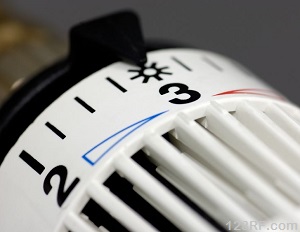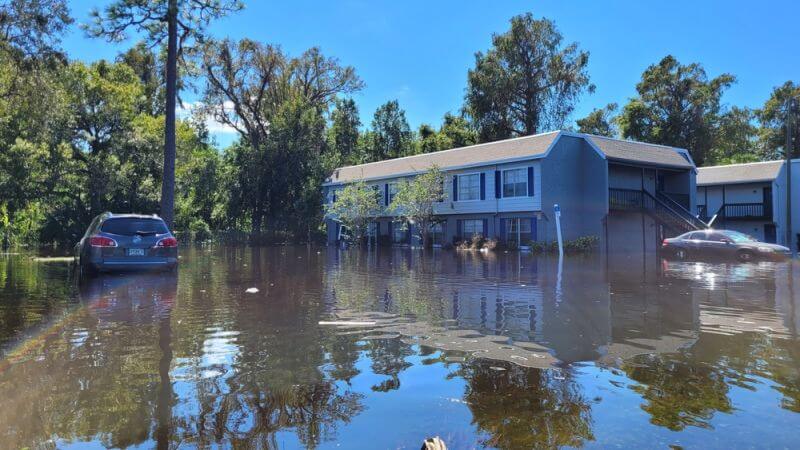Everyone who gets into prepping ends up with the problem of figuring out how to pay for it. Just trying to stockpile enough food can be pretty expensive, without even getting into buying the necessary equipment to allow you to survive in the various different situations you could find yourself in. If you’re going to survive, you’re going to have to come up with that money somewhere.
That’s not the biggest financial concern that preppers have though. Many experts agree that the United States is on the way to financial ruin. Our government can’t keep spending money at the rate that it is indefinitely.
Our national debt is so high right now, that our country’s credit rating has been downgraded twice. Not only has that, but federal government spending now equaled about 1/4 of the country’s GNP.
If a financial collapse comes or even a run on the dollar, we’re going to see high inflation rates kick in quickly, perhaps even hyperinflation. When that happens, wages won’t be able to keep up with inflation. So, we’re all going to end up with a serious earnings to spending gap.
There are only two ways to fill that gap, earn more money or spend less. Considering that high unemployment is the other big sign of a financial collapse, it might be nearly impossible to earn more money, or even earn the same amount of money that you were earning before the collapse. That leaves us with finding ways of cutting our costs.
Most people live from paycheck to paycheck. If you asked them, they’d say that there’s no fat in their budget; that they’re spending as little as possible. But I’m not so sure.
The problem, as I see it, is that we are so used to our comfortable way of life, that we don’t want to cut things out, not that we can’t cut them out. We have come to see things as necessities, which our grandparents would have called luxuries.
Let’s face it; we all waste a lot of money. If we didn’t, we could live off of a whole lot less. We just don’t consider many of the things we spend our money on to be a waste. But let’s look at some of those top wasters and see how we could save ourselves some money.
Cars
The average American middle-class family is making payments on two cars. In many cases, the combination of their car payments is higher than their house payment. Ouch! We could easily save a lot of money by buying older used cars and paying cash for them. You can get a pretty good deal on a ten year old car and if it was well maintained, it’ll still last a number of years.
Many people counter this one by saying that if they buy older cars, they’ll have to spend a lot of money on maintenance. That might be true, if you buy cars that are junk and take it to the mechanic. But if you’re willing to get your hands dirty, you can do most of those repairs yourself.
Another thing to consider is buying an older car and then spending the money to have the drive train, steering and suspension totally rebuilt. That’s a whole lot cheaper than buying a new one, and will give you a car that’s in just about as good a mechanical shape. It just won’t look new.
Heating and Cooling
Our monthly energy bills are another place where many families are hurting. Paying three or four hundred dollars a month to heat and cool our homes is a lot; especially when you consider that we’re wasting a lot of that money.
I
Another great way of saving money on this is by putting in zoned heating and cooling. You used to have to install separate HVAC units in each zone to do this, but now you can accomplish it by putting a valve in the heating and cooling ducts. That allows you to only heat and cool the part of the house which is being used.
Finally, your hot water heater is keeping your water at an ideal temperature for washing dishes and bathing 24 hours per day. But do you really need that? I seriously doubt that you need hot water while everyone is sleeping or at work. Put it on a timer and only have it heat the water when you are there to use it.
Food
The average American family spends $600 per month on groceries, plus an additional amount on eating out. That’s another big chunk. Granted, we all need to eat; but do we really need to eat so expensively?
The worst offenders for wasting money in the kitchen are prepared meals and snack foods. We could all save a bundle by going back to cooking for our families, rather than paying some factory to do it.
Cell Phones
This is one of my favorites. As American’s we spend a fortune on our cell phones. Every family member has a high dollar smart phone and we pay for the best service we can get. For some families, cell phone bills top $300 or even $400 per month.
If you really need for every family member to have their own cell phone, make sure you get on a consolidated plan. There are some companies offering plans now, which allow all of you to be together and pay a whole lot less.
You might also want to take a look at the types of phones you have; do your kids really need a $400 smart phone? My generation grew up without them and we turned out okay.
Entertainment
Finally, we tend to spend a lot on entertainment. From renting movies to our video games to going on vacation, the average family piles up quite a bill on momentary happiness.
I’m not saying that you should cut entertainment out of your life all together, but there are a lot of fun things you can do, without spending a lot of money.
Wrapping it Up
Every family has to make their own decisions about their finances. But I’d recommend taking a look at how you’re spending your money, with an eye towards seeking out waste. Don’t just call your spouse’s hobby waste either, take a look at your own.
The thing is, if you don’t take a look at this now, you might find that circumstances take all those things away from you. When they do, I can guarantee you that it won’t be any nice, easy transition.
It’ll be a sudden shock that you have to deal with. It’s much easier to make adjustments one at a time, rather than having them all mount up on you at once.
This article has been written by Bill White for Survivopedia.









Pingback:Top 6 Money Wasters in Your Home | Survivalist Basics | Be Prepared For Anything! | October 12, 2014
|
Ted | October 12, 2014
|
Cell Phones- I use a Tracfone cell phone. It came with triple minutes and has internet capabilities (that i don’t use) Minutes are not lost but failure to renew on time can result in losing the phone number and having to get a new number. Cost- I was buying a one year card (400 minutes tripled plus a bonus code easily found on the internet 250 min. for a total of 1450 minutes for just under $100 complete. I accumulated so many minutes (I rarely use the phone) that i began only buying a 90 day/60 min. card for $20 four times a year. With a bonus code it comes out to 840 minutes and 360 days for $80. I just found out I can go online at tracfone and buy a $10 card and then purchase a $50 one year extension. I get 365 days plus 30 days for the $10 card and 30 min. tripled to 90 min. for about $60 As I use up minutes, I’ll switch to a different buying strategy.
Caveat- I really dislike Carlos Slim ( the Mexican billionaire owner) These phones are the infamous Obama phones you may have heard about. You may not want to deal with this company for political reasons but to cut costs I have not found a better bang for the buck. If you plan on using a lot of minutes or data yearly I cannot speak to that, but for me this works. Finally, don’t take my word, do your own research, I’m only showing you one option.
Snake Plisken | October 13, 2014
|
Hi Bill, what i take away from your post is that few people really take a serious look at their cost of living per day. Perhaps that is due to a very busy lifestyle and family life or perhaps laziness.
Most Americans live lives of great affluence compared to other countries. Even the poor people in the USA live grand lives compared to Mexico. I read recently that even people who earned lass that 20K a year that 68% of them had a car.
Myself, I work a full blown commission sales job so I either have a pocket full of cash or could be broke. I don’t like being broke so I’ve had to train myself to budget carefully to bridge to monetary gaps. That’s why your article spoke to me on several levels.
I buy older but well maintained vehicles that I can repair and I only have to have liability insurance. That alone saves thousands of dollars a year.
My cell phone is now 44 dollars a month of unlimited calls and text in the USA and Canada where most of my work is conducted.
I had to keep my hi speed internet for my business but I don’t have cable. My cable/internet bill used to be 180 dollars a month but I’ve whittled that down to 68 dollars by cancelling the cable. I did invest in a digital antenna which gives me 9 local stations and to my surprise, I haven’t missed cable TV at all. And I’m not much into movies or video games. I do have a subscription to Netflix through my Roku unit although it’s usually my teenagers watching it.
Vacation? What in the world is that? 🙂
Heating my home is the greatest expense especially in Ohio winters. When i leave the house for work I generally turn down the heat to 55 degrees. Just enough to keep the dog warm and keep the house plants alive. My youngest boy is 19 and going to a local trade school so he’ll stop by a couple of times a week and make himself some lunch and turn up the heat but when he leaves he’s been pretty good about turning the heat back to 55. I also keep a couple of kerosene heaters in the house for when that Arctic Clipper from Canada blows thru. Eventually I’ll replace the old forced gas heater with a new and efficient furnace.
Where i have saved a lot of my hard earned cash is one of the most simple things of all: when I need to run into town ( 10 minute drive ) I make a list of the chores or items I need and do all that shopping at once. That saves me a lot of gasoline because I’m organized and not running out my gasoline because I forgot something. Also, I try and time my shopping and chores at a time when there are less people in the places I need to go. My time has a cost factor as well. If i’m standing in line for 15 minutes while some deadbeat can’t decide what lottery numbers to play then they have just wasted 15 minutes out of my day when i could be doing something productive. And I do get grumpy with these folks and will let them know. But then again, I’m pretty grumpy anyway! 🙂
I also save money by working from home 2 days a week. My boss is kind enough to allow me to do so because I produce for the firm. My drive one way, with construction everywhere, is now about 45 minutes one way. So I do save on my gasoline budget.
Best,
Snake Plisken
Pingback:Top 6 Money Wasters In Your Home | TheSurvivalPlaceBlog | October 15, 2014
|
Jim | October 27, 2014
|
It has been mentioned that people may lose their homes if they do not have the money to make payments during a collapse. What kind of problems will likely occur if on has gold or silver, could that be used to make payments? If so, how? In the case of an EMP or MEMP, with virtually all communications down, how would one make a payment?
Pingback:How To Fix The 14 Most Annoying Home Problems | The Prepper Dome | March 1, 2015
|
Pingback:How To Fix The 14 Most Annoying Home Problems | Survival skills, survival guns, survival guide | March 2, 2015
|
Pingback:How To Fix The 14 Most Annoying Home Problems | TheSurvivalPlaceBlog | March 3, 2015
|